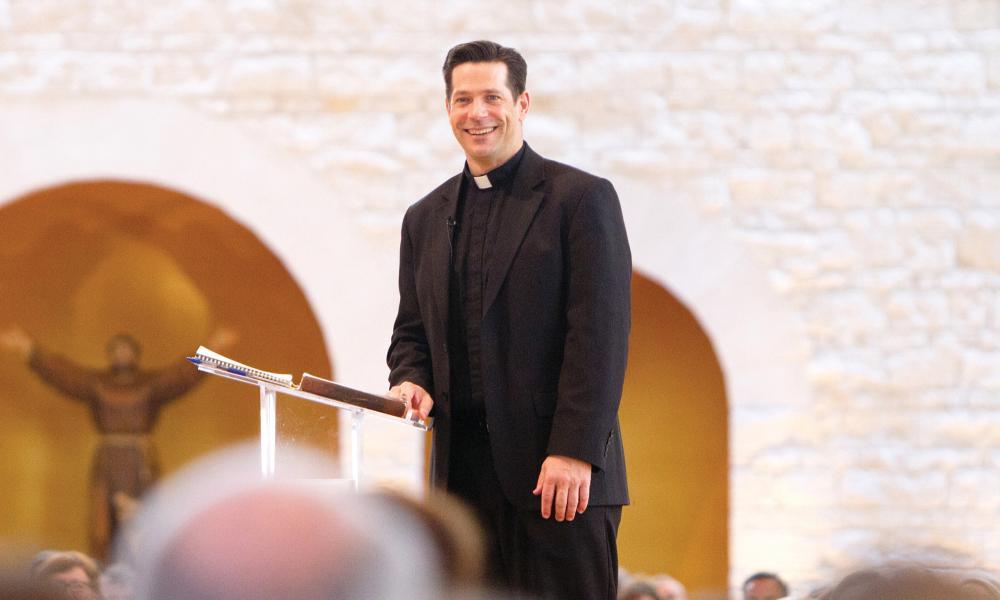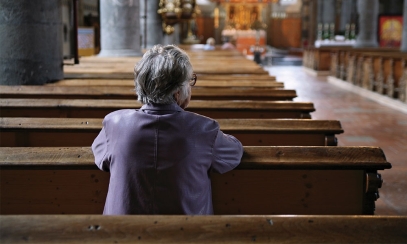
What Should a Catholic Make of ‘Cancel Culture’?
I have noticed something happening in our society that people have called “cancel culture.” How are we supposed to respond to this as Christians?
This is quite the timely (and potentially volatile) question! Over the course of the past few years, the prevalence and power of social media has given rise to this reality. For those who are unfamiliar with the term, “cancel culture” refers to a kind of “boycotting or shunning of an individual or group who is deemed to have acted or spoken in a questionable or controversial manner.” (Thank you for the definition, Wikipedia).
This kind of response to unwanted speech or behavior is nothing new. All cultures throughout the world have had a standard of behavior that gets reinforced through the way people respond to each other. In fact, there have been many societies that are identified as “honor- based” or “shame- based” cultures. In many of these cases, there is a clear delineation between what kinds of actions are acceptable and which are not. To violate cultural norms is to risk being ostracized (or “canceled”). Not only that, but an argument can be made for the value of being able to make people experience consequences for bad behavior when the systems that are set up for those consequences fail to bring about justice.
So, if this is nothing new, then is it nothing big? If this is common in many cultures, are those who are concerned about cancel culture making a fuss over nothing?
While canceling might not be novel to our culture, I do not believe that our current society is well-equipped to deal with this question, for at least two reasons: we lack truth and grace.
Relativism and subjectivism are a part of our societal landscape. The affirmation that there is no real right and real wrong is one of the beliefs that has been broadly accepted by our culture. I remember hearing a priest once say something along the lines of, “We live in a culture that claims that there is no such thing as right and wrong, yet everyone is desperately afraid of being judged.” That has been my experience. When there is no real sense of right and wrong, all we are left with is utility and preference. “Does it work?” or “Do I like it?” are all we are left with.
With no objective standard, there are no external guiding principles for behaviors. And with no guiding principles, there is no limit to what can be a “cancelable offense” except a person’s own willingness (or unwillingness) to tolerate an opinion or behavior they don’t like.
Without objective truth, the only two options this kind of culture has are to either tolerate and celebrate all behavior or to condemn behaviors that we dislike. Even more, cancel culture doesn’t merely condemn behaviors, it condemns people.
And this is possibly the heart of what is wrong with cancellations. They do not stop at pointing out evil (or even merely unpopular) ideas and behaviors. They target people. As Catholic Christians, we do condemn certain ideas or behaviors as wrong or evil. We do hold up certain behaviors as good and virtuous. But we are prohibited from condemning individuals.
Further, when we Christians encounter our own (or another’s) failings, we have recourse. We can acknowledge our sins and ask for forgiveness. There is a remedy to our brokenness and failure, and it is called mercy — it is called “grace.” But a world without God cannot offer what it does not have. And our world has chosen to fashion itself as a world without God, which has lead to a world without grace.
In the First Letter of St. Paul to the Corinthians, St. Paul describes the situation of a member of the church who was living in a romantic relationship with his father’s wife. Paul was shocked that his fellow Christians knew about this and tolerated this scandalous behavior. What the man and woman were doing was clearly wrong, yet no one in the community was doing or saying anything about it. Because of this, St. Paul instructed the local church to treat the man “as an unbeliever” so that he would realize his sin, repent of his choice, and be reconciled with the church. This is the first description of something like “excommunication” in the life of the church.
We need to pay attention to at least two aspects of this action.
First, Paul instructed the community to “treat him as an unbeliever.” This didn’t mean preventing the man from going about his work or slandering him in the larger community. It simply meant that he was not to participate in the life of the community. For example, he would not be free to receive Holy Communion since he was in a state of sin. This “cancellation” was limited in scope to this particular community.
Second, it is misleading to even call this situation “cancellation.” The man was not merely being punished; he was being taught. The goal of treating him this way was so that he would turn from an evil action and return to the community. The early Christian community could do this because it was appealing to an objective standard (and not merely their own preference) and were offering a mercy that could fully restore the man to grace.
This isn’t totally foreign to us. Most of us have experienced this in how we were raised. At some point, I imagine that we have heard the words, “You can come back to the dinner table when you are ready to sit still and behave.” This is necessary for socialization and for teaching children how to behave on a basic level. Parents make it clear that there is an objective standard and offer the opportunity for participation in the life of the family without restriction once the child has returned. The man in First Corinthians (and children in their families) are not being “canceled,” they are being corrected.
We all give off subtle “corrections” to the people around us. And we all receive countless such corrections. Every time we pleasantly acknowledge someone who smiles at us, we are affirming a particular behavior. Every time we roll our eyes in annoyance, we are expressing displeasure.
But this is “correction,” not “cancellation.” And there is a difference.
As Christians, we can offer correction based on an objective standard that transcends mere preference or utility. And we must continue to extend the offer of grace and restoration to all who are willing to accept it.
Father Michael Schmitz is director of youth and young adult ministry for the Diocese of Duluth and chaplain of the Newman Center at the University of Minnesota Duluth.



